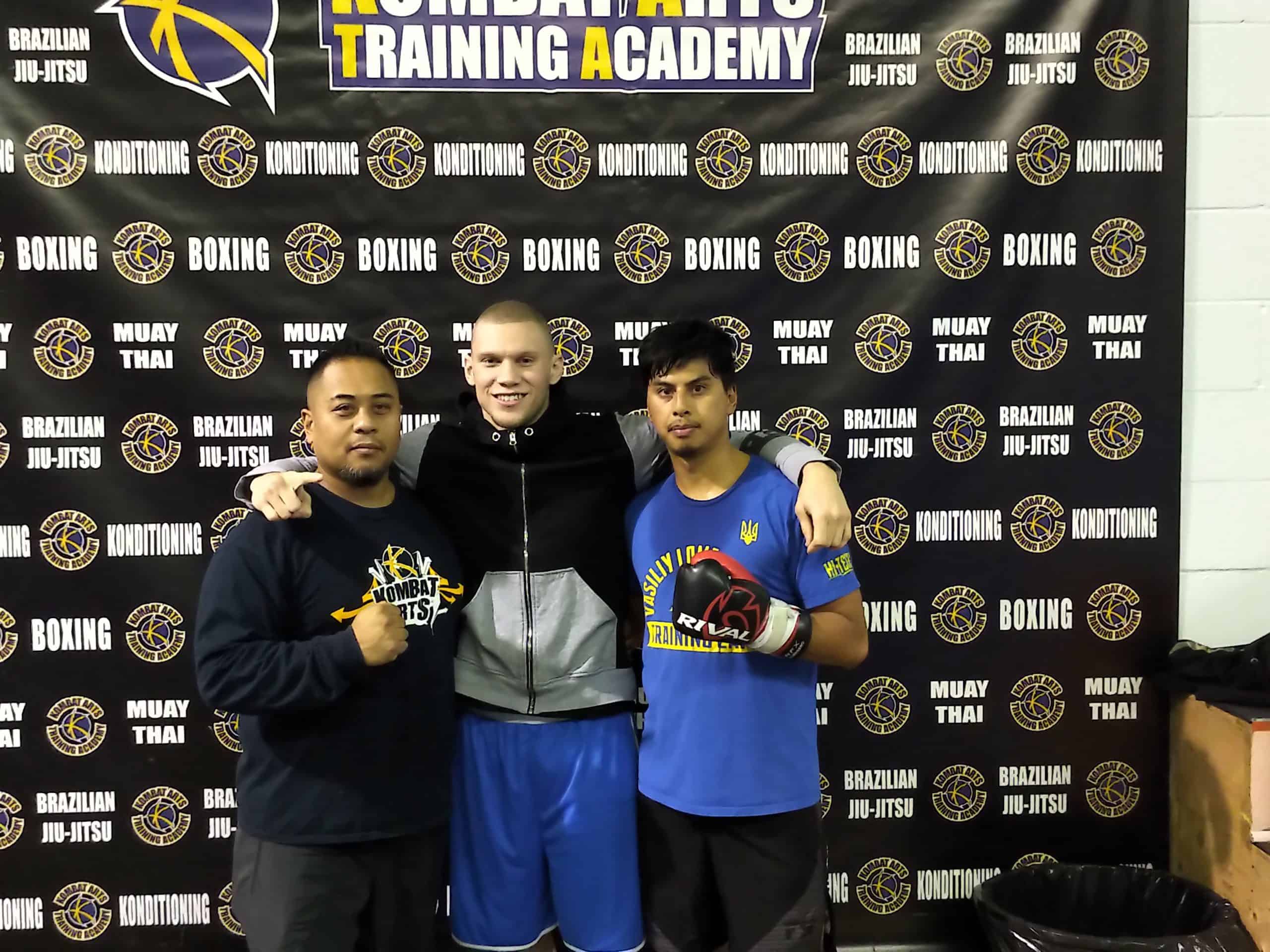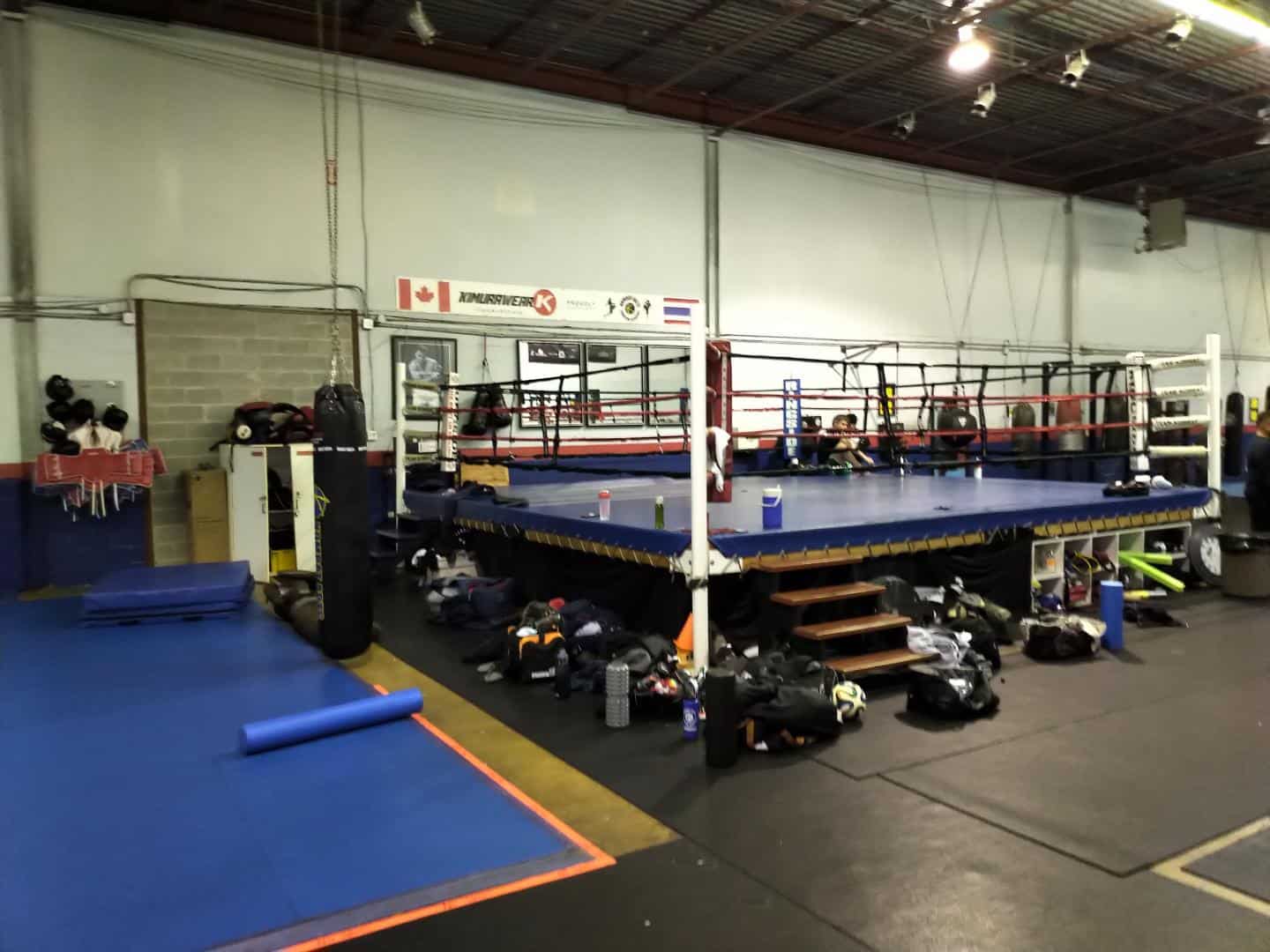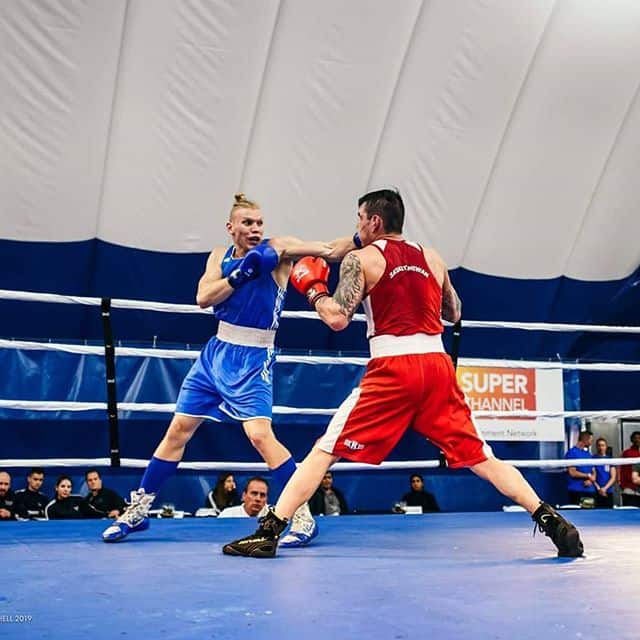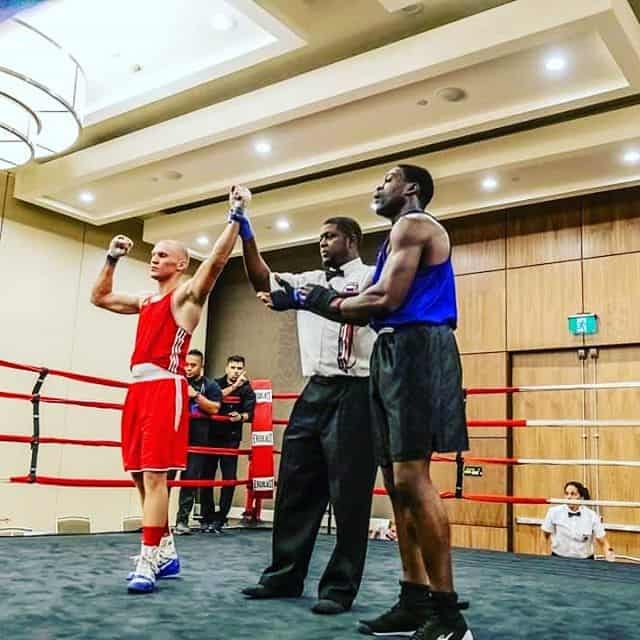Mississauga Boxer chasing Olympic dream
Published January 24, 2020 at 7:22 pm

From the outside, Kombat Arts Training Academy in Mississauga doesn’t look that big. However, when you walk inside it seems to continue forever.
Towards the front of the gym are two large wrestling mats.
Towards the centre of the gym is a regulation boxing ring; on a shelf behind the ring, a boombox plays up-tempo music–fast beats and heavy bass, perfect for training.
Along the right side just in front of the ring is a strip of turf–this is where you can usually spot boxers warming up by skipping rope.
Towards the back of the gym, hanging from the ceiling, are several heavy bags.
At the very back of the gym is a series of weights and exercise equipment.

Depending on when you show up to train, whether it’s at 11 in the morning or 8 at night, the chances are pretty good you’ll see John-Michael Bianco, a local boxer and Olympic hopeful.
Bianco started boxing in 2011 when he was 17 years old. However, when he was young, three of his uncles were competitive boxers, so he grew up around the sport.
“As crazy as it sounds, I knew that I had a future in boxing when I was in middle school–years before I started competing–although I had only put on a pair of gloves a few times, It was in my blood; I was kind of destined for it,” he says.
When he started training, he knew right away he wanted to compete. At the time, there were two boxing organizations in Ontario–Bianco started as a competitor in the Ontario Boxing Association; an organization that has since folded.
Many of the boxers, including Bianco, joined the other provincial boxing organization: Boxing Ontario.
When Bianco stepped into the ring for his first fight, he had been nervous in the days leading up to the bout.
“I was nervous but also excited; I got most of the nerves out after the first round,” he says.
However, unlike many athlete-prodigies, Bianco lost his first competition. Rather than let it defeat him, he used it as motivation to work harder.
“I was disappointed that I lost, but I knew if I wanted to take it further, I would have to train harder,” he says.
Since then, Bianco has developed confidence in his abilities, which only comes from hours of training and honing his craft.
“I put everything into my training and I’m confident in the skills I’m constantly working on in the gym. I still get butterflies sometimes, but I’m much more confident now, which is due to my experience and training,” he says.
Despite the fact he is much more confident in his abilities now compared to when he started, Bianco still describes himself as a bit superstitious.
“I think every athlete is superstitious,” he says.
His pre-fight ritual is the way he enters the ring. “When I step into the ring, I always perform the same entrance; When I step through the ropes I bounce off them on every side of the ring. It’s kind of weird, but if I don’t do it, I don’t feel right,” he said. He also says a prayer on his way to the venue, something he has done before every single one of his fights.
Bianco describes his style as that of a counterpuncher. “I’m mostly a counterpuncher, but I’ll force the action when I want too. I can adjust to any style that I’m up against, and I like to dictate the pace and force my opponent to play my game,” he says.

In 2015, four years after he started boxing, Bianco made the switch to Kombat Arts.
“I’m close with my coaches; we usually talk every day, and I see them more than my own family when I’m training for a fight,” he says.
“I started working with [Bianco] about four years ago now,” Sean Fulgencio, Bianco’s current coach at Kombat Arts, says.
According to Fulgencio, one of the biggest things he focuses on with Bianco is the mental aspect of the sport.
“A lot of what we focus on is mental. At the elite level, having a mental edge is what often determines winners and losers. Being mentally prepared also helps fighters when they have to travel to competitions away from home, sometimes without their coach in their corner,” Fulgencio says.
Fulgencio believes this is the greatest strength of Bianco’s game. “This is something we work on constantly. He works with a neurologist to make sure when he steps into the ring, he’s mentally prepared to fight. He’s very good at getting comfortable being uncomfortable,” he adds.
When getting ready for a fight, Bianco starts training six weeks out.
“When we’re preparing for a fight, we go through a six-week camp. We start with strength and conditioning at the beginning of camp, and towards the end, we focus on more sparring, bag work, and technical stuff as we begin to taper off closer to the fight,” Fulgencio says.
“The goal is to get him in peak physical shape by the end of camp right before the fight,” he adds.
When he’s in camp, Bianco starts his days with strength and conditioning training in the mornings, then a run in the afternoons, then some technical work—on the heavy bag and doing pads with his coach—in the evenings.
“Sunday is usually a sparring day for me and then I try to get a run in; Monday I do pad work and light technical work at the bag; Tuesday I start the day with some strength and conditioning in the morning, and then sparring at night; Wednesday I focus on high-intensity training such as sprints; Thursday is a cardio day so I’ll go for a run either in the morning or afternoon; Friday is a rest day—especially because it’s one of my busier days for work; and Saturday I will do some light, technical work, then go for a run, and finish with a lift in the evening,” Bianco says.
Rather than cutting a lot of weight right before he fights, as many pro boxers do, Bianco prefers to stay close to his fighting weight, to avoid big cuts in a short amount of time.
“I hate cutting a ton of weight, so I make it a point to walk around close to my fighting weight—which is 178 lbs.,” he says. “Right now I don’t have to cut too much weight, but when I was fighting at 165 lbs. the cuts could get pretty gruesome—I would be eating less, hitting the sauna a lot, and running a lot–just trying to sweat out all the excess weight before weigh-ins.”
He adds: “Now, I don’t have to take any extreme measures to make weight, I just focus on eating healthy, and not overindulging on food.”
However, while he doesn’t have to cut as much weight, he does miss certain foods that he can’t eat during camp—namely cake and ice cream.
Like many amateur athletes who dream of competing at the Olympics, Bianco has to work to support his training.
“It’s been a bit difficult balancing work and training because you have to choose which to prioritize, but realistically you just need to have a good balance between the two,” Bianco says.
“Although, my work has been very supportive of my boxing, which has made training and competing that much easier,” he adds.
During a typical day for Bianco, he finishes work between 2 and 3 p.m., goes straight to the gym to train, heads home to rest and eat, then goes back to the gym to train again in the evening.
It doesn’t hurt that his employer, a company called Barbeque Pro, has been very supportive and flexible when it comes to his training schedule.
“My work has been very supportive of my boxing—whenever I need time off to focus on training, or if I need to come in late, they’re very accommodating,” he says. “This time of year is our slow season, so I’m working a lot less, which allows me to train full-time.”
In his last fight, the Canadian Olympic qualifier, Bianco won the whole tournament, which allowed him to move on to the next stage—a tournament in Hungary.
Going into the Canadian qualifier, Bianco said he was very confident in his ability to finish first.
“I just looked at like any other tournament. I was very confident going into it because of how hard I trained for it in the weeks and days leading up to it. I didn’t really tell anyone this, but even before my first fight I knew I was going to win the whole thing,” he said.

Currently, the Olympic hopeful from Mississauga is in Montreal, preparing for a tournament in Hungary. He’ll be fighting from February 2 to February 9. However, he will be without his coach in his corner.
When asked how he would feel watching his boxer compete from back home, Fulgencio said he isn’t worried.
“I’m used to it already. I’m confident in his abilities and the work he does in the gym leading up to the fight. When fighters get to this level, you have to prepare them as much as you can, so they’ll be ready to fight without you in their corner,” Fulgencio says. “That’s part of why we focus so much on the mental aspect of the sport—to get them in the right mindset to fight in an atmosphere they’re not used to and with a coach with whom they may or may not be familiar.”
Bianco isn’t concerned either: “I don’t really know the coach who’ll be cornering for me—I haven’t trained with him before, and I’m not familiar with his coaching style, but I’m not really nervous about it,” he says. “I’m pretty open to different coaching styles, and I’ll take any tips any coach is willing to give me. The only thing I’m a little nervous about is the pad work—I’m pretty picky about how I like to do pads, so I’m a little apprehensive about that.”
Because he isn’t located in Montreal, Bianco will be responsible for paying all the costs of his training, travel expenses, and food himself. “The Canadian government doesn’t provide funding unless a boxer is carded, and to be carded you have to be located in Montreal—something that’s not possible for me right now,” he says.
Altogether, he has to raise $7,500. “I’ve been working on securing sponsorships, selling merchandise, and I’ve started an online fundraising campaign to help raise money as well,” he says.
Those interested in helping support Bianco chase his Olympic dream can do so here.
Photos courtesy of John-Michael Bianco’s Instagram
insauga's Editorial Standards and Policies advertising





